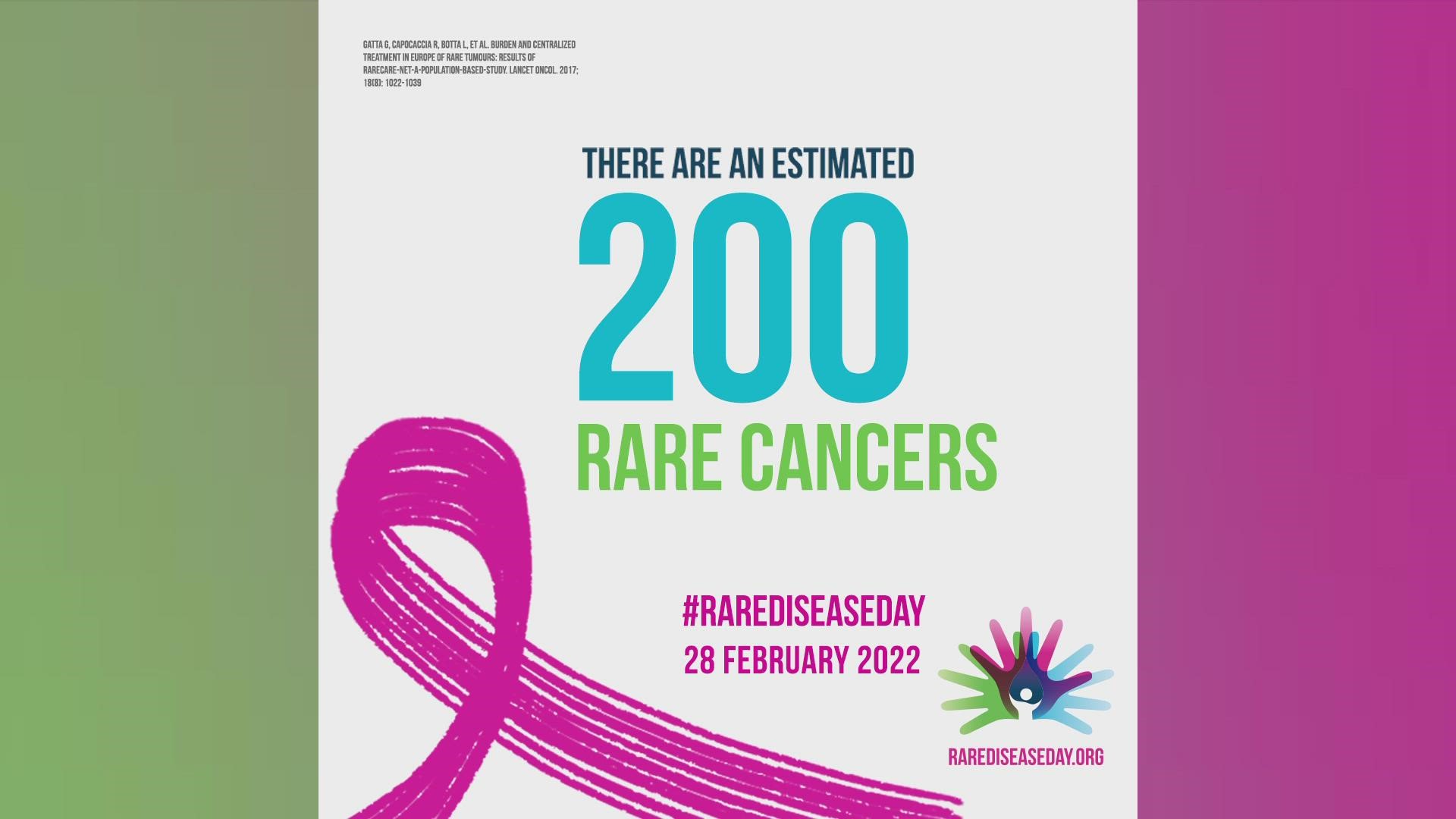NORTH CAROLINA, USA — On Monday, Feb. 28, WFMY News 2 is bringing awareness to Rare Disease Day.
There are 7,000 rare diseases classified as rare, and for those battling these ailments, it can be frustrating trying to find resources and care. Here are five ways to get started finding the right care and treatment, as outlined by the National Institutes of Health.
1. How to find a healthcare professional that specializes in a rare disease
Many disease advocacy groups can help point you in the best direction. The Genetic and Rare Diseases Information Center (GARD) lists thousands of rare diseases. From there, you can find a disease by category, then narrow it down to the subcategory and rare disease. If you still can't find an organization that helps with a specific rare disease, try searching the Genetic Alliance and the National Organization for Rare Disorders websites.
Even online research publications like GeneReviews and NORD might list a doctor's name, institution, and email or phone number. Try PubMed as well.
2. How to find a specialty treatment center
Contact a support organization for a rare disease to see if they know of a Center for Excellence.
The National Cancer Institute has information on how to find a doctor or treatment facility if you have a rare cancer.
The Muscular Dystrophy Association (MDA) offers discounted medical services for members through clinics across the country. To learn about these services, contact the MDA toll-free at 1-800-572-1717.
3. How to find a genetics clinic
Most primary care doctors can help you set up a genetics testing appointment or put you in contact with a genetics counselor.
Here are three sites you can use to find genetics counseling services near you:
4. How to find a researcher who is studying a rare disease
Researchers studying a specific rare disease can also be a resource if you're looking for a doctor. You may want to search for researchers who are conducting a clinical trial, as they are often medical doctors, the National Institutes of Health says on its website. If a researcher does not see patients, it doesn't hurt to reach out and ask if they know someone who does.
Here are a few research databases you can access for more information:
5. What to do if you still can't find a rare disease specialist
Consider calling a doctor at a university health center near you, because they tend to have the latest technology and treatment options.
MedlinePlus, a website designed by the National Library of Medicine, might also be able to help you research a rare disease.
You can also call 1-888-205-2311 to speak with a GARD Information Specialist.

